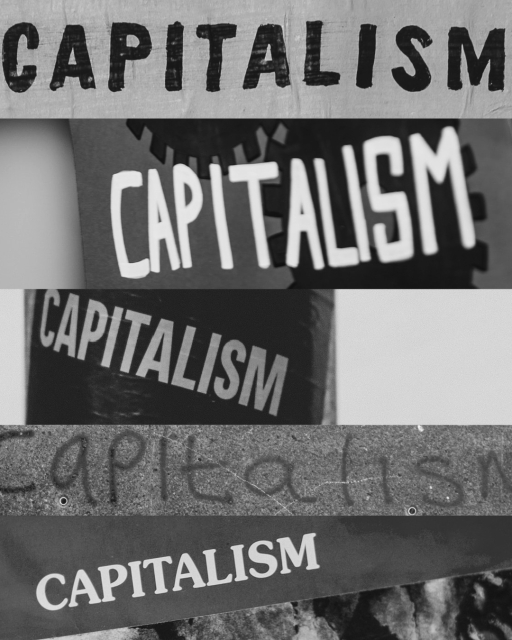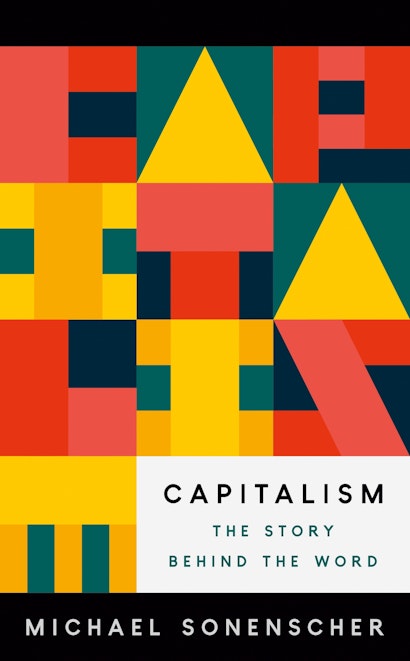Capitalism is a word used variously to describe an economic and social system, a modern form of political power, a dynamic mode of production, a stage in a world-historical process running from feudalism to communism, a western object of ideological allegiance, a durable form of inequality or, more simply, a thing. Like many other words that end in “-ism” (think, for example, of liberalism, atheism, nationalism, feminism or environmentalism), capitalism is the name given to a number of originally separate subjects and problems that, because of the ending in “-ism”, came to be grouped together as a single noun. In this purely etymological sense, capitalism began as a kind of shorthand for a ramifying array of moral, political, social or economic problems that, at the outset, were once quite discrete. Surprisingly, the problems in question were considerably less familiar and more varied than those usually associated with most current versions of the concept of capitalism. Modern conceptions of capitalism standardly refer to subjects like states and markets, empires and slavery, power and patriarchy, prices and profits, money and exchange, value and surplus-value, property and commodities, machinery and industry, religion and ethics, custom and law, entrepreneurs and firms, and, probably, a great deal more.
Curiously, none of these modern versions of the concept of capitalism makes much reference to subjects like war and the costs of war, public debt and public administration, sociability and community, individuality and individualism, utility and integrity, originality and nationality or even justice and expediency. These, however, were once the subjects that formed the core of the concept of capitalism in the early nineteenth century. The differences between the conceptual connotations of the same word—one earlier, the other later—raise two large and interesting questions. The first is a question about how and why one set of connotations changed into the other. The second is about how to evaluate the relative significance of the qualities involved in the concept of capitalism. Together, the two questions are good reasons for finding out more about how the word “capitalism” was originally used and what, over time, both the word and the concept were intended to do. Piecing together the story behind the word could show, firstly, how a number of initially separate ingredients crystallised into a single noun and, secondly, how the resulting conceptual compound throws fresh light on both the connotations and the content of capitalism itself. The genealogy of the word could, in short, be a guide to the genealogy of the thing.
In the beginning, the word referred to several different subjects. “Capitalism” began as a French word (capitalisme) but was used initially to refer to several largely British problems. The most salient was the modern (eighteenth-century) system of war finance, or the practice of borrowing large amounts of money—or capital—to fund the costs of war. In French, someone who lent money to a branch of the French royal government was called a capitalist (capitaliste). The French word, however, was given an English salience by a widely noticed prediction about the British system of government, or what contemporaries called the English constitution, that was published in 1748 by Charles Louis de Secondat, Baron de Montesquieu in his influential book, The Spirit of Laws. “As all human things have an end”, Montesquieu wrote in Chapter 6, Book 11 of his famous work, “the state we are speaking of will lose its liberty, will perish. Have not Rome, Sparta and Carthage perished? It will perish when the legislative power shall be more corrupt than the executive”. Public debt, on some interpretations, favoured this bleak prediction (called by many of his early readers Montesquieu’s “prophecy”). It freed the executive from dependence on the legislature for grants of tax revenue, enabled it to use money and office to build up and maintain a party of its own, and gave it a freer hand in decisions over war and peace—unconstrained by prudence on the one side but more exposed to the ebbs and flows of patriotism (“the last refuge of the scoundrel”) on the other. Public debt could, in short, undermine the constitution that it was created to defend.
Two further developments favoured the crystallisation of capital and capitalistes into capitalisme. One was the appearance of the concept of the division of labour in Adam Smith’s Inquiry into the Nature and Causes of the Wealth of Nations in 1776 and its bearing on what Smith called a commercial society. The second was the use made of a combination of Smith’s concepts and Montesquieu’s “prophecy” by a French royalist writer named Louis de Bonald during the constitutional debates that took place in 1794 and 1795 after the end of the Jacobin regime of the first French Republic. To Bonald, trying to replace the republican system established during the French Revolution with a more balanced, British-style constitutional regime was to jump out of the frying pan into the fire. Opting to do so, Bonald warned, amounted to endorsing Montesquieu’s prophecy without registering its consequences. The real alternative to Jacobin republicanism, he argued, was not British constitutionalism, but absolute monarchy.
All the ingredients of what was to become the original concept of capitalism were readily available in Bonald. They were soon brought together under the aegis of the word itself in a number of royalist publications that began to circulate before and after the French Revolution of July 1830. Here, capitalism became a shorthand for a fusion of two related problems. Behind the political question of the type of constitution suitable for the new regime, there was also, they argued, a social question, which asked whether any or all of the constitutional arrangements established by the July Monarchy were compatible with the combination of the division of labour, public debt, and inequality that, they claimed, were the hallmarks of capitalisme. No simple constitutional adjustment, they argued, could erase the legacy of the French Revolution. Real closure would have to come from erasing the French Revolution itself.
Capitalism, in this setting, began as a French royalist and legitimist concept that was designed to expose the limitations and fragility of the Restoration settlement and July Monarchy. It also, more importantly, began as a real political problem since the original concept of capitalism was a palimpsest of many of the most morally and socially explosive issues to have arisen over the course of the eighteenth century and the French Revolution: from war and debt to constitutional crisis and social dissolution. Positioning the concept of capitalism in a context that, right from the start, was significantly more apocalyptic than that of an industrial revolution or an economic category helps to explain the urgency and intensity of efforts made to understand the nature of the thing itself. Exploring these efforts throws new light on subjects like the division of labour, the nature of money, the concept of comparative advantage, the idea of a Rechtsstaat, and the claim to the right to work. It makes it possible too to bring a fresh approach not only to the thought of Smith, Ricardo, Hegel and Marx but also to what was involved in the unexpected transformation of public debt and warfare into social democracy and welfare. In this setting, public credit was not a synonym for capitalism but the antidote to capitalism. Finding out more about the story behind the word reveals how much more, both then and now, there is to find out about the story behind the thing.
Michael Sonenscher is a fellow of King’s College, University of Cambridge. His books include Sans-Culottes and Before the Deluge (both Princeton).

